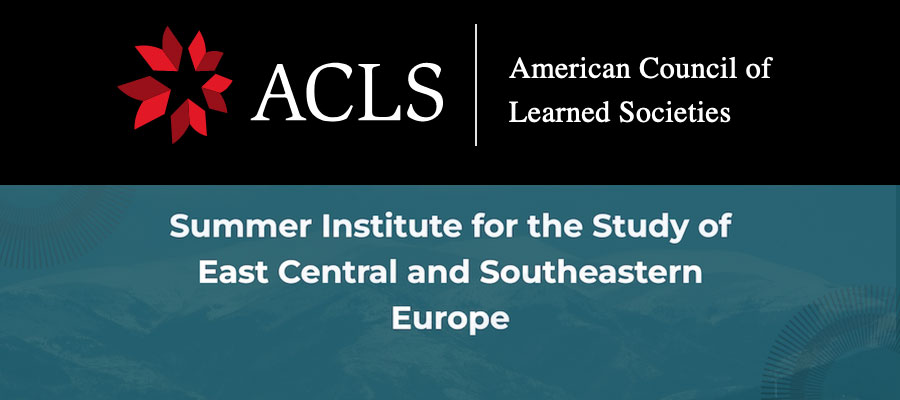Summer Institute for the Study of East Central and Southeastern Europe, Blagoevgrad, Bulgaria, June 5–20, 2025
The Summer Institute for the Study of East Central and Southeastern Europe (SISECSE) is a two-week residential workshop, that provides scholars of Eastern Europe time and space to dedicate to their own research and writing in a collaborative and interdisciplinary setting. ACLS in partnership with the Centre for Advanced Study Sofia (CAS) will convene leading scholars from Eastern Europe and North America for a two-week residency in Blagoevgrad, Bulgaria from June 5, 2025 to June 20, 2025.
SISECSE will also provide participating scholars with the opportunity to undertake local fieldwork, including archival research, work in museum collections, interviews, site surveys, or other forms of data collection. Fieldwork is not a requirement for participation in the institute.
The program will offer a travel stipend and cover accommodation and per diem expenses for the two-week residency. Institute members will be expected to be in residence and to participate in all planned events for the duration of the institute.
In addition to conducting their own research, scholars will also have the opportunity to participate in small group writing workshops, as well as a series of immersive discussions on a broad topic of shared academic interest.
In 2025, discussions will explore “Epistemic Mistrust: Authorship, Credibility, and Knowledge Production.” Whether in times of crisis and war, or times of peace and stability, who do we trust to tell the truth? Whose stories do we listen to? With a growing lack of trust in traditional sources of knowledge—including suspicion of academic institutions—public confidence in the value of research is eroding. Nevertheless, humanistic approaches are essential for fostering critical thinking and promoting interdisciplinary dialogue. Participants will consider diverse questions: how can scholars in the humanities or interpretive social sciences help cultivate a more nuanced understanding of truth? How can we enhance the relevance and accessibility of academic research? How can we make the process of knowledge production and dissemination more inclusive?
It is not required or expected that applicant’s research projects are connected to the workshop theme. Thematic discussions are intended for the enrichment of the participants.
Eligibility
- Applicants must have a PhD degree conferred (officially awarded) by an accredited university by the application deadline. An established scholar who can demonstrate the equivalent of the PhD in publications and professional experience may also qualify.
- The competition is open to scholars in any field or discipline in the humanities or interpretive social sciences pursuing postdoctoral or advanced research in East Central and Southeastern Europe, including Albania, Belarus, Bosnia and Herzegovina, Bulgaria, Czechia, Croatia, Hungary, Kosovo, Moldova, Montenegro, North Macedonia, Poland, Romania, Russia, Serbia, Slovakia, Slovenia, and Ukraine.
- Applicants must have an affiliation—a long-term regular research or teaching appointment—with a university or college in North America (US, Canada, Mexico) or Central/Eastern Europe (see the list above).
- There are no restrictions as to the citizenship of applicants.
- The application must be submitted in English, but the written work produced may be in any language.
